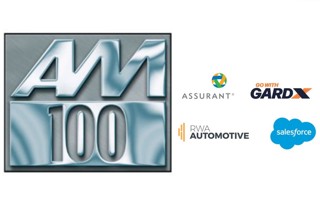The motor retail sector was already under pressure pre COVID-19 from falling new car registrations due to economic uncertainty following Brexit and the impact of changes in consumer buying behaviours and technology. As we come out of lockdown and with a recession looming, many consumers may find themselves with:
- increased personal debt
- loss of employment
- reduced disposable income
- higher taxes to pay
- lower mileage cars at their front door
- low trade in values.
All these would suggest that demand for new and used cars will not recover any time soon. So motor dealerships now have the following challenges:
- what will retailing look like post lockdown
- how best to ‘unfurlough’ staff
- an ageing used stock (potentially below the funded value in extreme cases)
- fixed costs they cannot mitigate
- cash burn
- manufacturer pressure.
Dealers may also be sitting with used car stocks that have aged and no longer worth the price bought in at. A flood of returned PCP cars from 2017 may well depress used car values further as they also come onto the market.
Hardest hit are likely to be the prestige dealers, Audi, BMW, Mercedes etc with Kia and new entrants like SsangYong potentially better able to take advantage of customers down scaling.
On the plus side, some cash rich operations may have taken the opportunity to acquire low priced used car stock, but such dealers are likely to be in the minority.
In addition, many PCP deals will have expired during the lockdown period. If the balloon payments were not made and cars were unable to be collected there may be a short term increase in demand for new PCP/lease deals for new cars. While not an increase in year on year sales, it may help catch up the missed PCP expiries. However, a lack of equity at the end of PCP agreements may inhibit renewals and also create an issue for funders struggling with a lack of new business and returned units with a low residual value. PCP costs may increase significantly post COVID-19.
Many vehicles will have missed routine service appointments and MOTs, but also reduced wear and tear on items usually replaced at service, limiting the ability in the short term to generate additional work. This will have a knock on effect onto parts departments’ sales volumes.
Some dealers looked to cash out on premises in recent years with sale and leaseback deals not uncommon. While this may appear prudent, it does leave a dealer with a rent obligation that may be difficult to meet.
Returning staff to work
Motor groups have furloughed significant levels of staff, up to 95% in some cases. Bringing these staff back into the business will be a key consideration. This will include the ability by sales staff to earn commission in the short term and how dealer groups may seek to compensate these key employees.
In light of the new trading environment, dealerships will also need to consider the structure of their workforce going forward.
Changing behaviours
Although a reluctance to return to public transport may result in a number of first time car buyers, many commuters will have found themselves adapting to a work at home mentality, adjusting routines and utilising tech in a way that may significantly change commuting patterns in the future. This may extend the period consumers retain a car for, downgrade to a lower cost model or even render car ownership an unaffordable luxury for some.
Online retailers have been impacting on dealer volumes and profitability for some time with major OEMs setting up their own platforms for vehicle sales. A consequence of greater technology use in recent weeks will undoubtedly enhance trust in online sales. Dealers could take this time to set up their own, and should do so, but may find it difficult to compete with those already established.
Manufacturer relationships
Manufacturers are likely to relax the demands for dealership refreshes to meet changing brand standards.
With the shutdown of many manufacturer operations across Europe and beyond, supply of vehicles post lock down may be restricted for a short period, however a built up of stock within some brands may mitigate this and create an opportunity to bring those levels down. It may be up to five months before the supply chain recovers to pre COIVD-19 efficiency levels. Margins will undoubtedly be under significant pressure if any form of market share is to be maintained.
Another challenge to face the sector is the introduction of the Euro 6, Real Driving Emissions Step 2 testing. This will apply to all new registrations from 1 January 2021. While some European governments have given manufacturers and dealers a period of time to dispose of non-compliant, unregistered stock, this is not guaranteed and the UK Government may not allow. Current circumstances may change this view given the significant reduction in registrations in March.
We know that many brands are actively reducing the size of dealer networks as sales are completed on line and buying methods become more simplistic (leasing/PCP) based upon a monthly cost as opposed to haggling on the bonnet price. This will further reduce a need to visit a dealer where model research, virtual test drives and price comparisons can be done online. While interest rates remain low, this will help consumers to buy cars, but we may never see the level of footfall through dealerships of previous years. Dealers may well be delivering cars to the customers’ home for test drive much more often.
Can used car values hold up?
Despite unsold used stock depreciating and new car targets not being met, crystallisation of used car value losses should be avoided unless cash flow forces a dealer’s hand.
Autotrader has seen a surge in cars being placed on its site and has made the service free for dealers. We Buy Any Car initially cut valuations by 20-25%, however, this was likely a knee-jerk reaction potentially being treated as an opportunity to acquire some low cost stock. Given there has been minimal trading, there has been no real change in valuations and therefore businesses will look to recommence trading at the same valuation level as at the end of March. While used car values will be impacted, changing customer behaviour may prevent a full blown crash in these.
Will acquisitions be on the agenda?
Many dealers already struggling with declining registrations, especially those who were late to switch on to a used car focus, may not survive the current lockdown. IHS Markit predicted a year-on-year 10 million light vehicle sales decline (12.2%) worldwide to 78.8m units in 2020 due COVI -19 and national counter-measures (AM Online).
KPMG previously predicted a 50% reduction in dealer numbers. While this seemed overly pessimistic and headline grabbing 12 months ago, we can expect some level of reduction and/or further consolidation,
Sales of dealerships will become challenging as the usual buyers tackle their own reduction to numbers and preserve cash to maintain existing operations. It may, however, produce opportunities for investment for forward looking groups seeking optimum consolidation options on key territories.
Dealers are now preparing their business so they can return quickly to more normal trading. While they may have maintained a dialogue with customers during this period, we suspect that the UK’s relationship with their cars, their ability to purchase and how such transactions may take place will have changed for the long term.
Author: Steve Le Bas, head of motor retail, BDO

















Login to comment
Comments
No comments have been made yet.